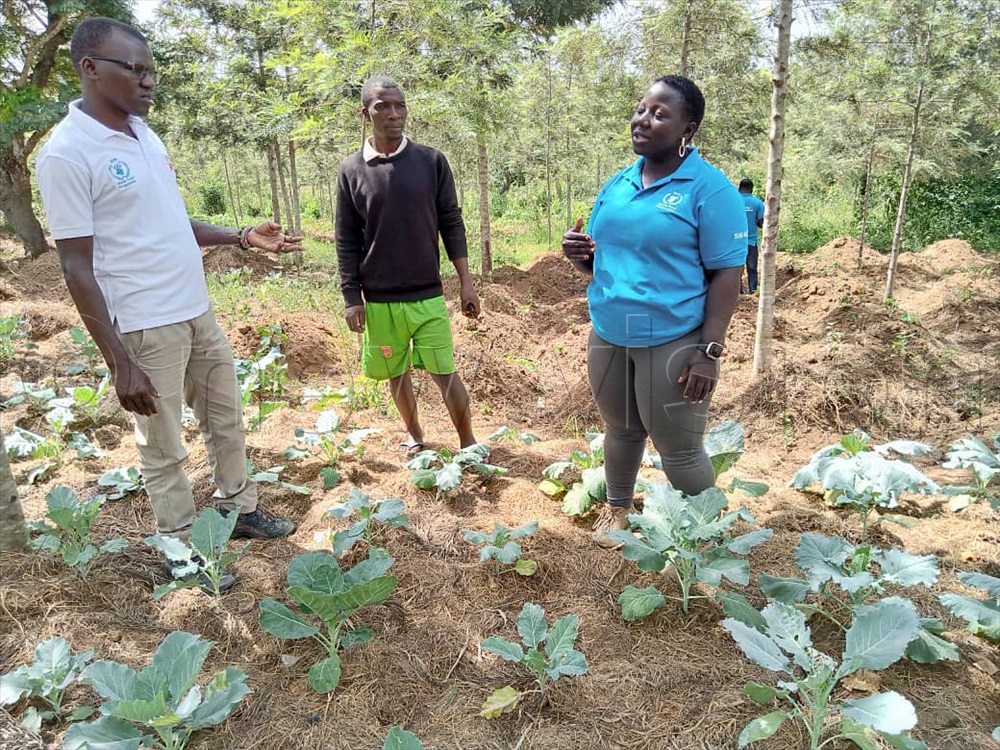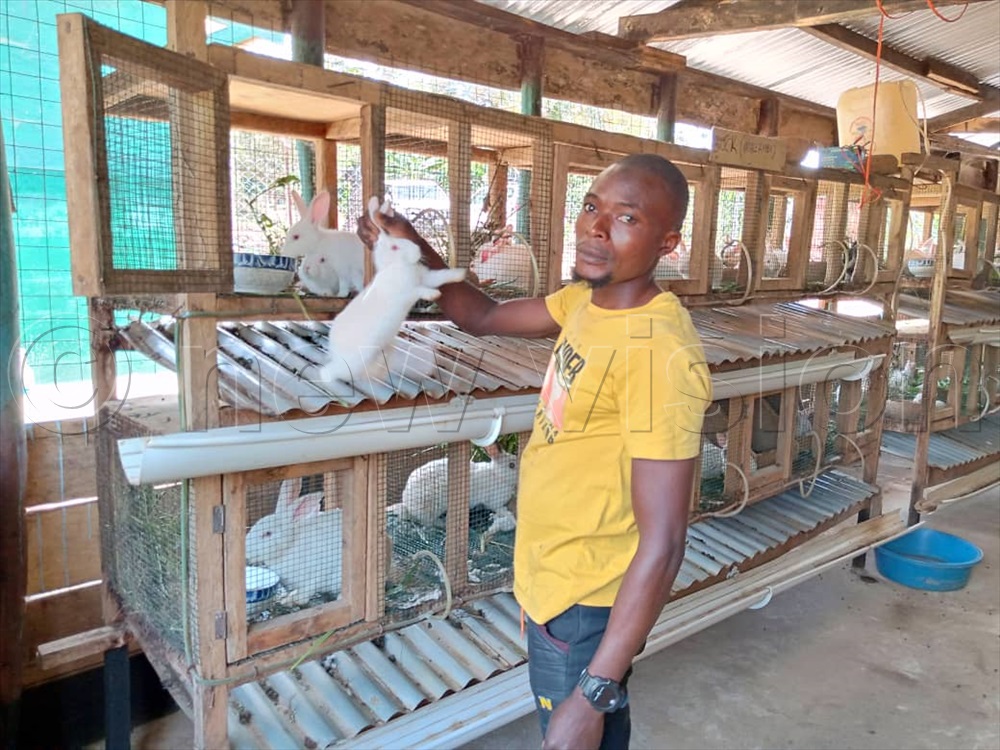By Ritah Mukasa
Twaha Yabata, the senior nutrition officer with Medical Teams International (MTI) working in Rwamwanja refugee settlements says, refugees are highly dependent on food relief.
“Our efforts are now directed towards making them self-sustaining,” he says.
For that, MTI collaborated with World Food Programme (WFP) and put in place a farmer’s field school. It sits on two acres of land in Kayihora village inside Rwamwanja settlement.
Here, 72 households have benefitted from rabbit rearing and vegetable growing.

The project targets 1,200 refugees who are members of community care groups.
Yabata says, the field school equips households with farming skills, seedlings and rabbits to boost their income.
Before that, through the care groups, they first introduced kitchen gardens where families grow vegetables and fortified foods like orange sweet potatoes.
In October 2022, MTI and WFP built a structure and bought 10 pairs of rabbits. The land was offered by the Office of the Prime Minister (OPM).
By January, the rabbits had multiplied to 92. Red Cross Society donated 76 rabbits, making them 168. These were distributed to 72 households each receiving a pair. The farm remained with 20 for multiplication.

“Rabbits are rich in haem iron and their urine can fertilize the kitchen gardens. Besides, families eat the meat and sell it as well,” he explains.
However, to ensure sustainability, Patricia Nalubaale, the WFP monitoring assistant says they first train the farmers and task them to build shelters before giving them the rabbits.
They also work with nutritionists and farmers are linked to veterinary services at their cost. This way, they take responsibility to see that their rabbits do not fall sick or die because they are also required to take back the first pair they received.
Yabata says, they look at supplying the rabbits to all the 1,200 care group members.
Away from that, at the farm, they also multiply bio-fortified foods including orange sweet potatoes and beans and distribute the seedlings to families.
Meanwhile, the recent WFP budget cuts will affect over 1.5 miilion refugees in the 13 camps and settlements around the country. They have been receiving money and basic survival rations, which include maize grain, beans, fortified oil, and salt.





